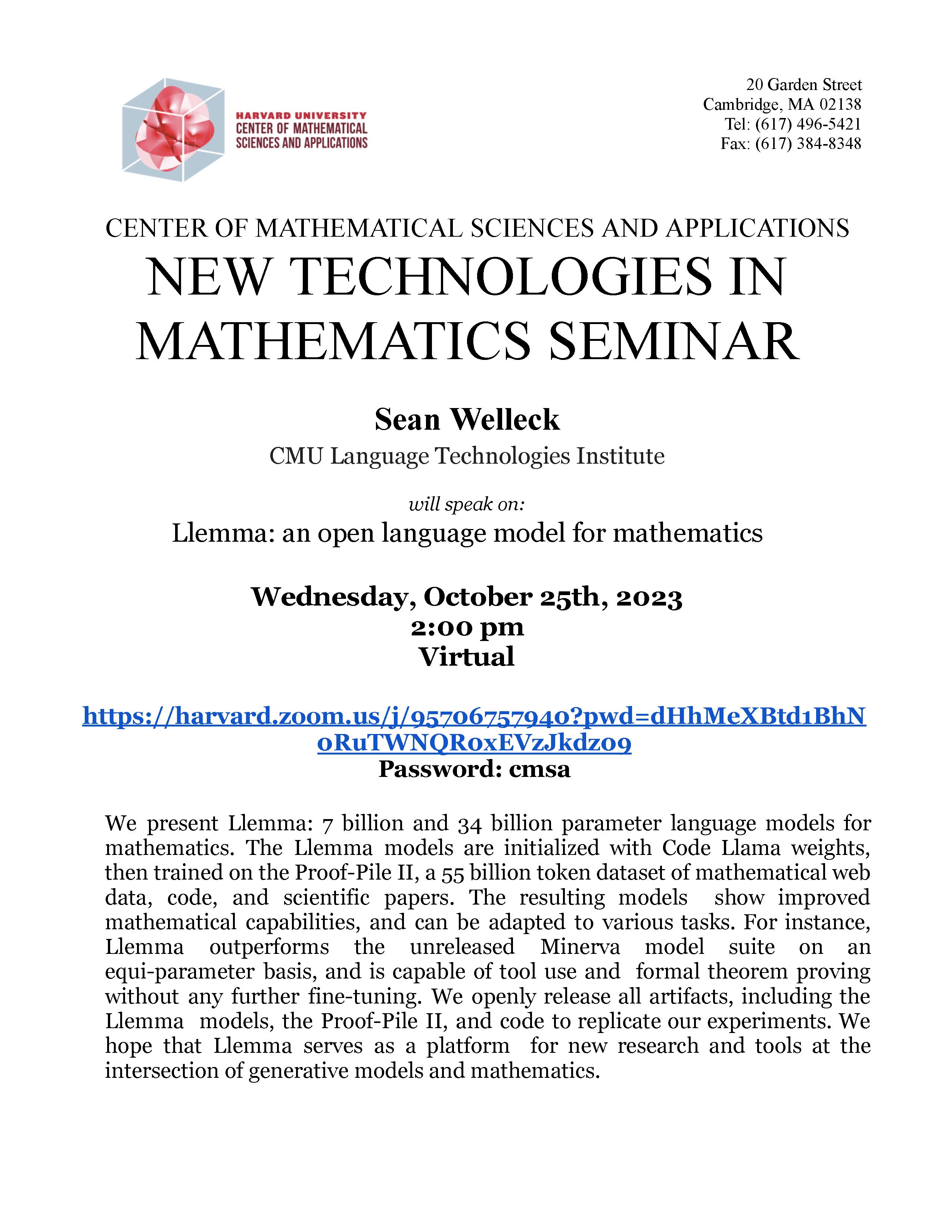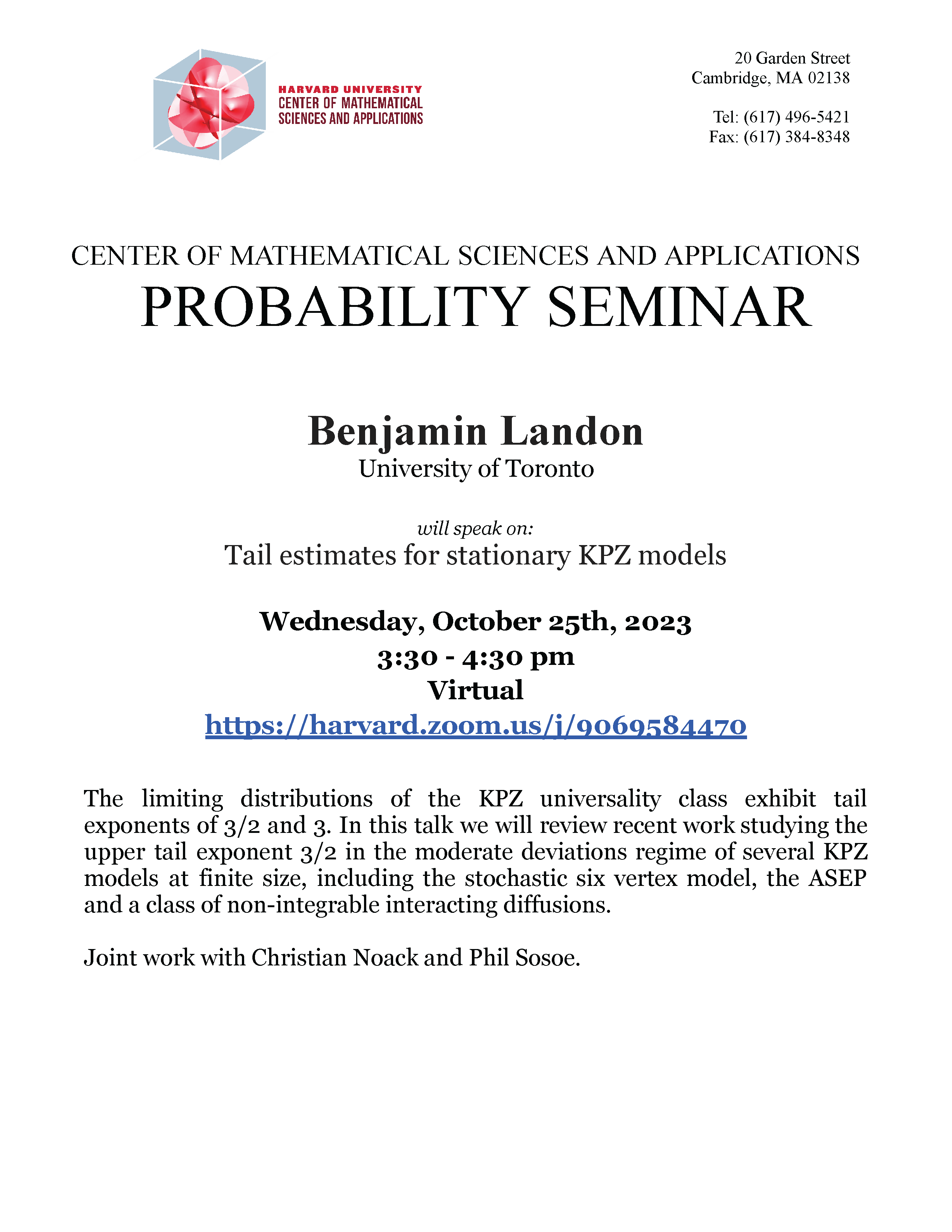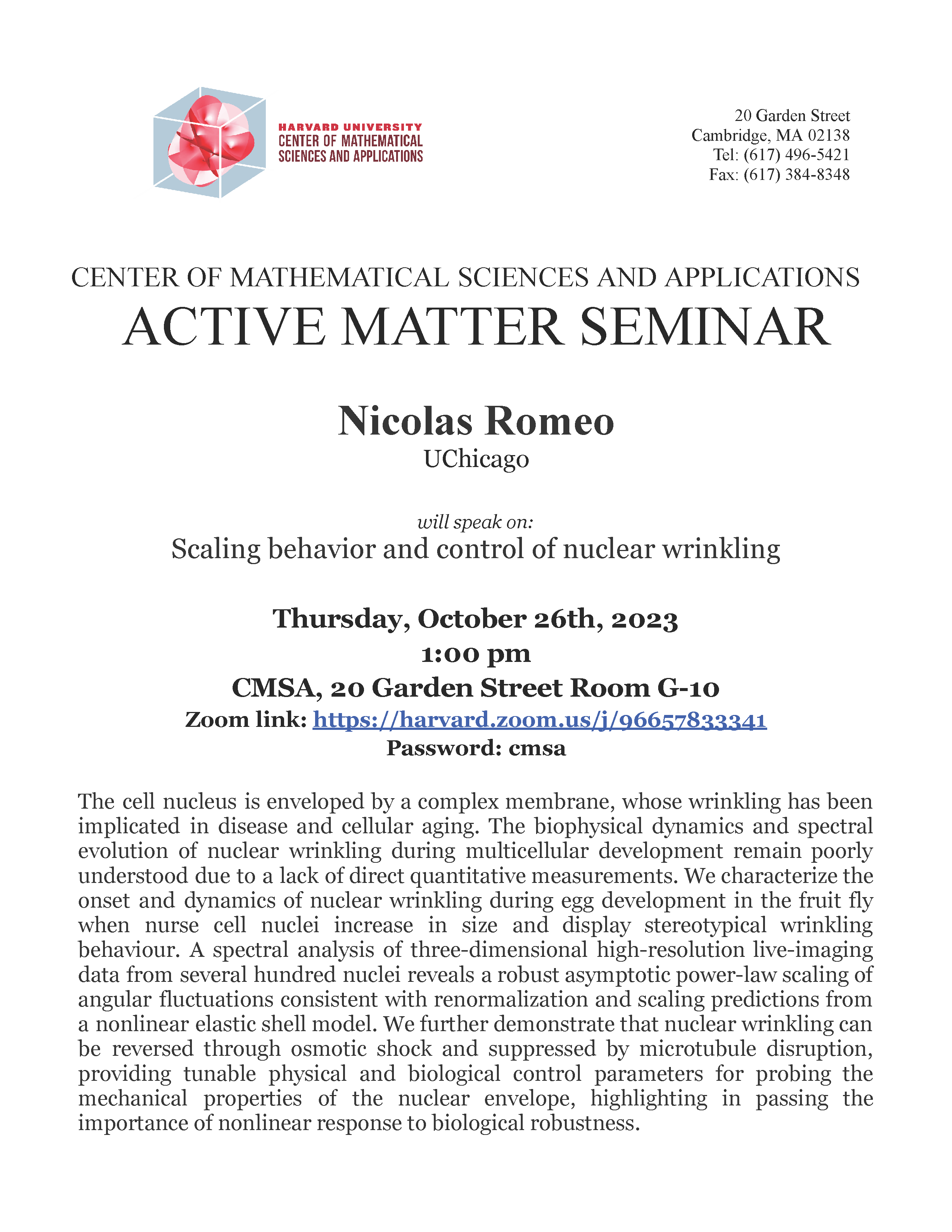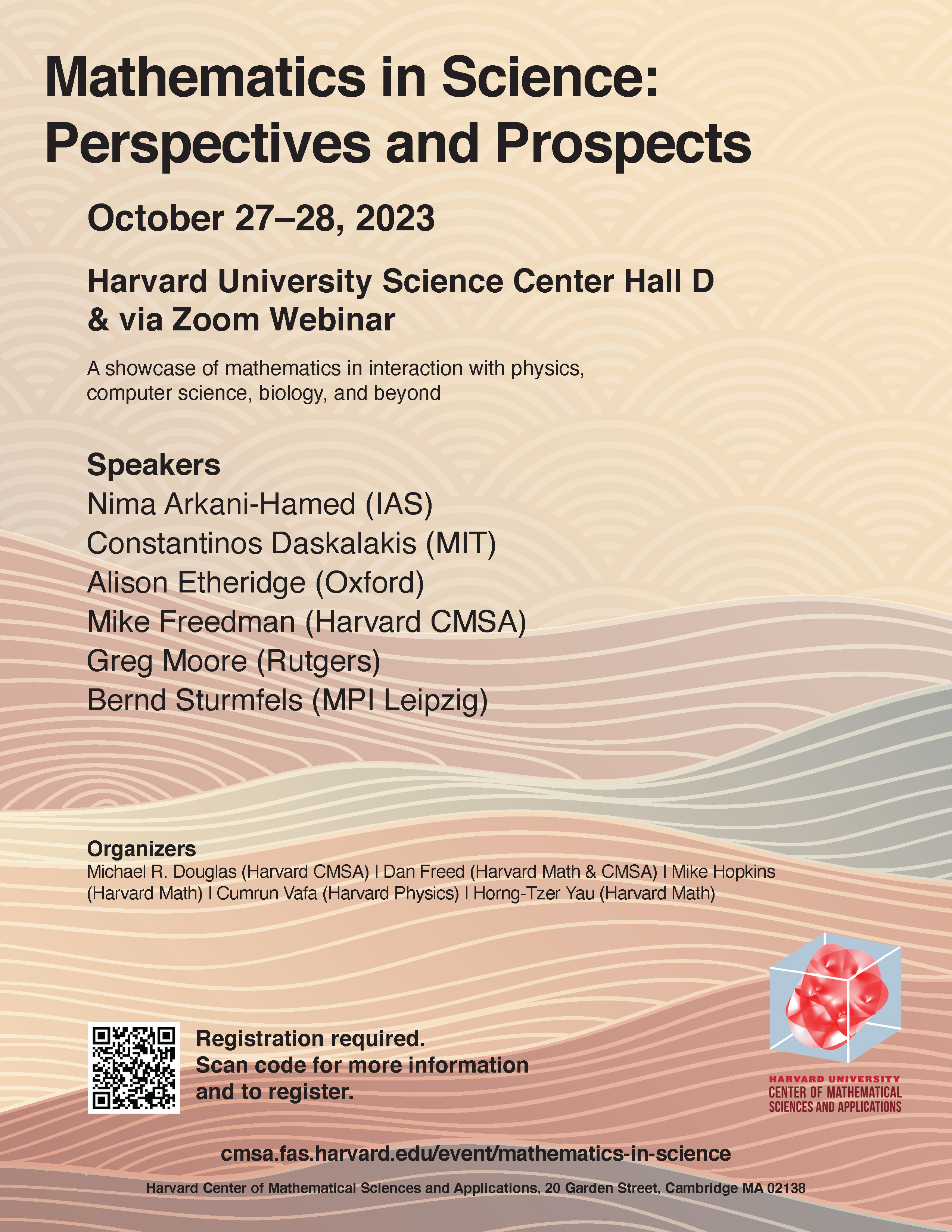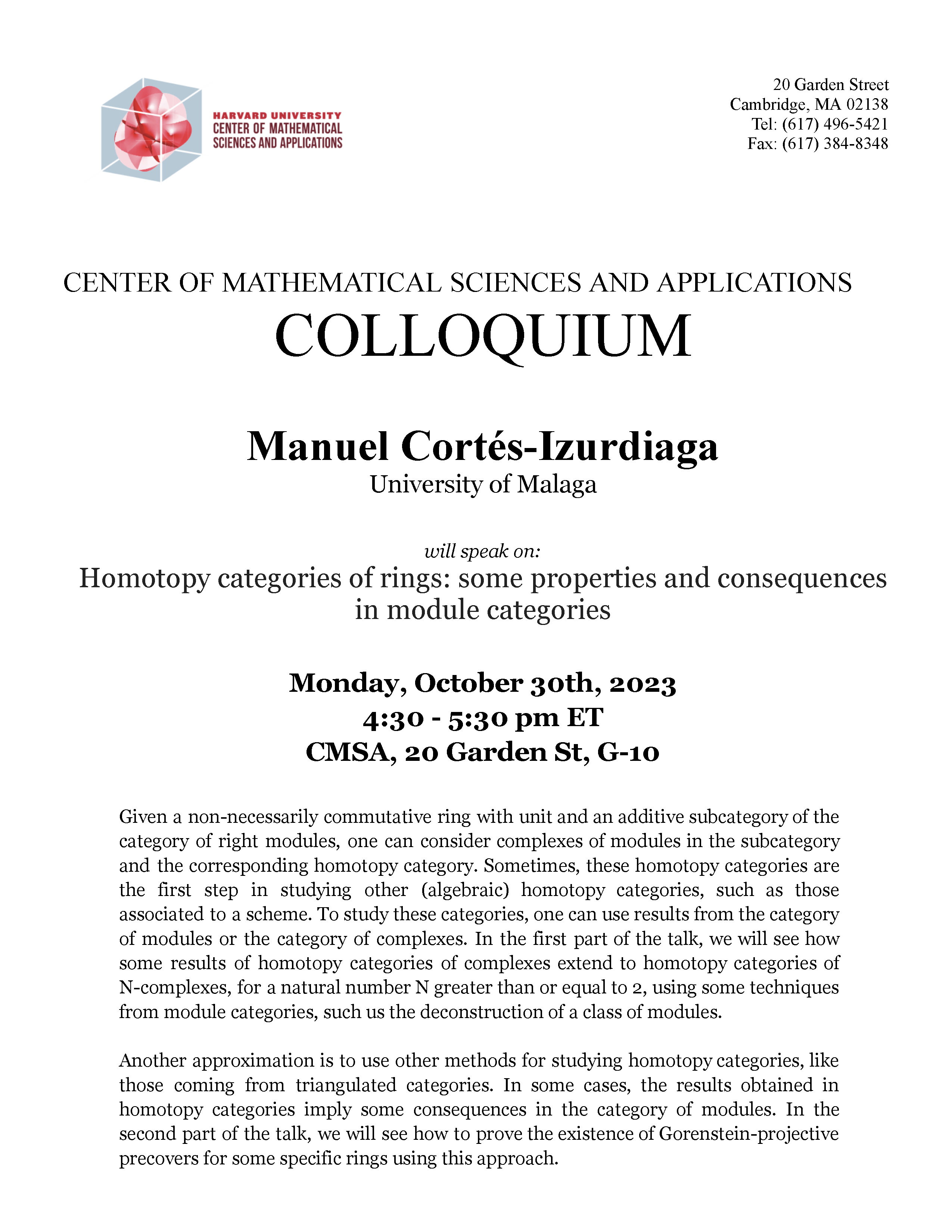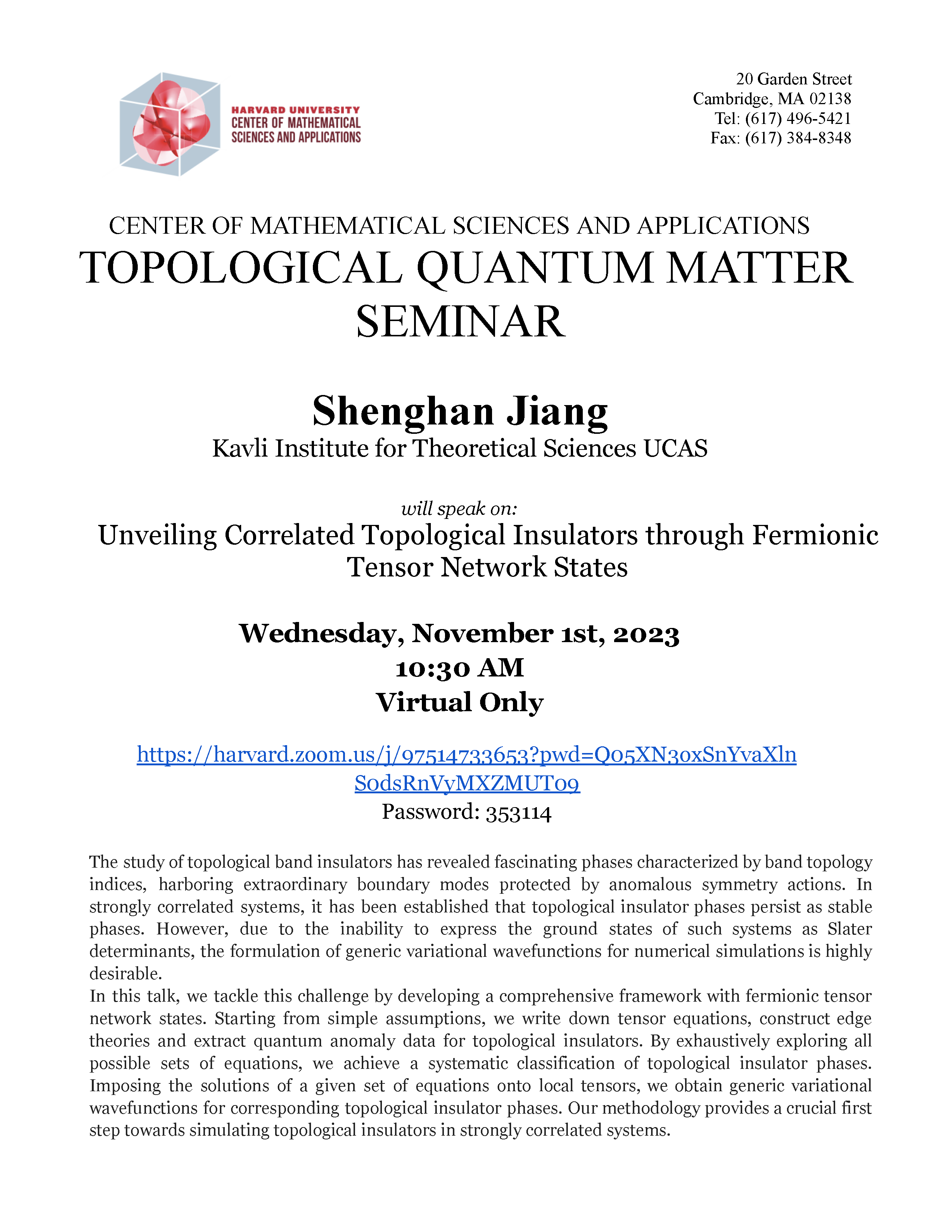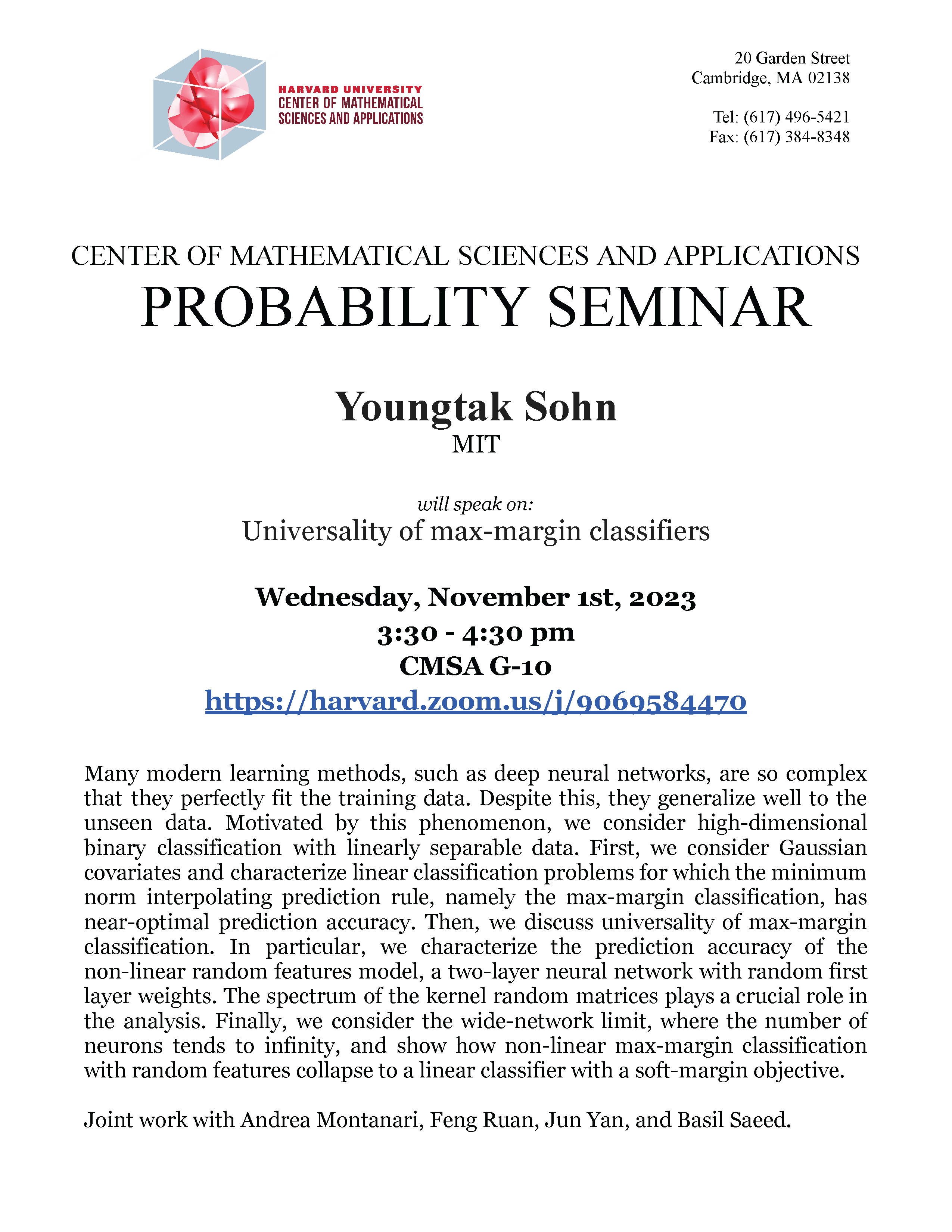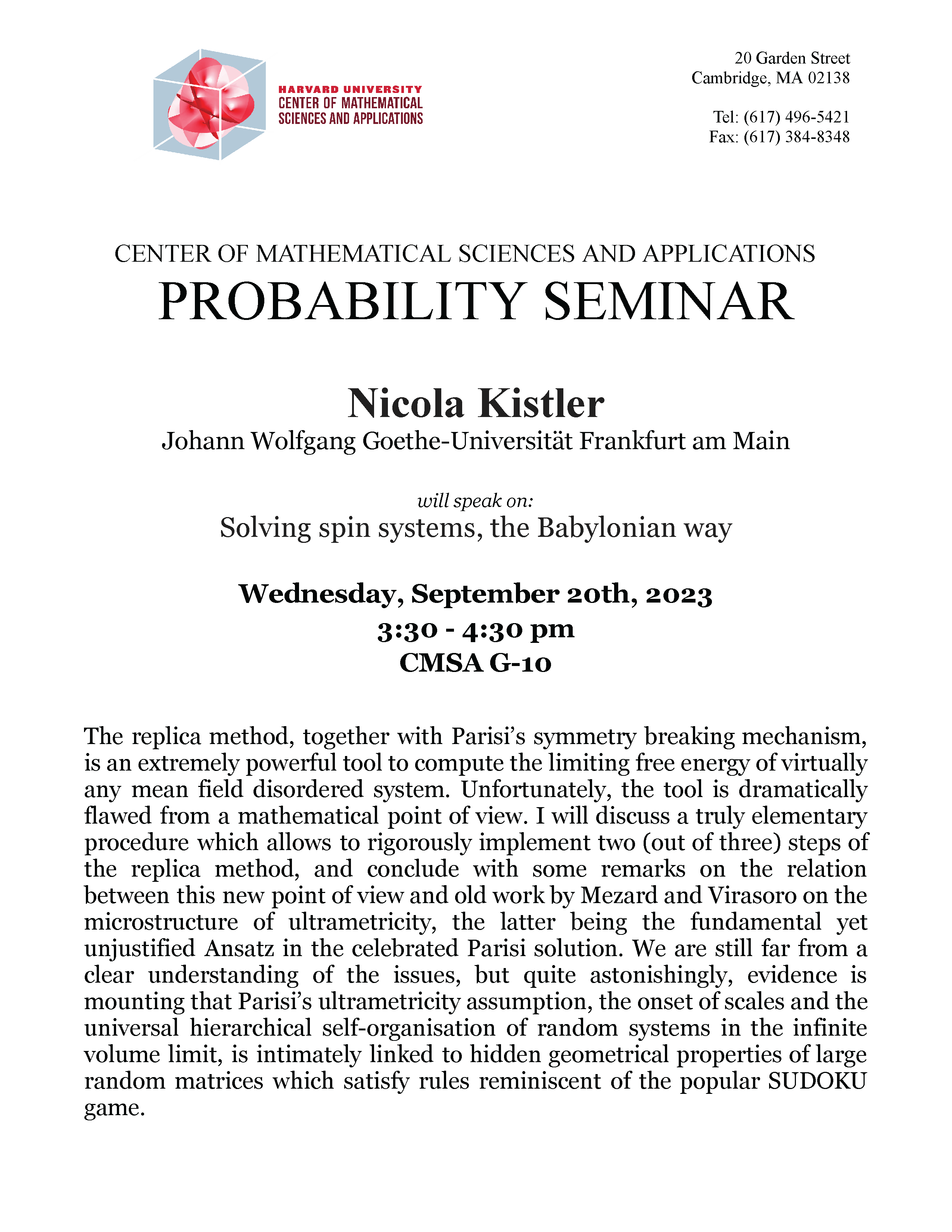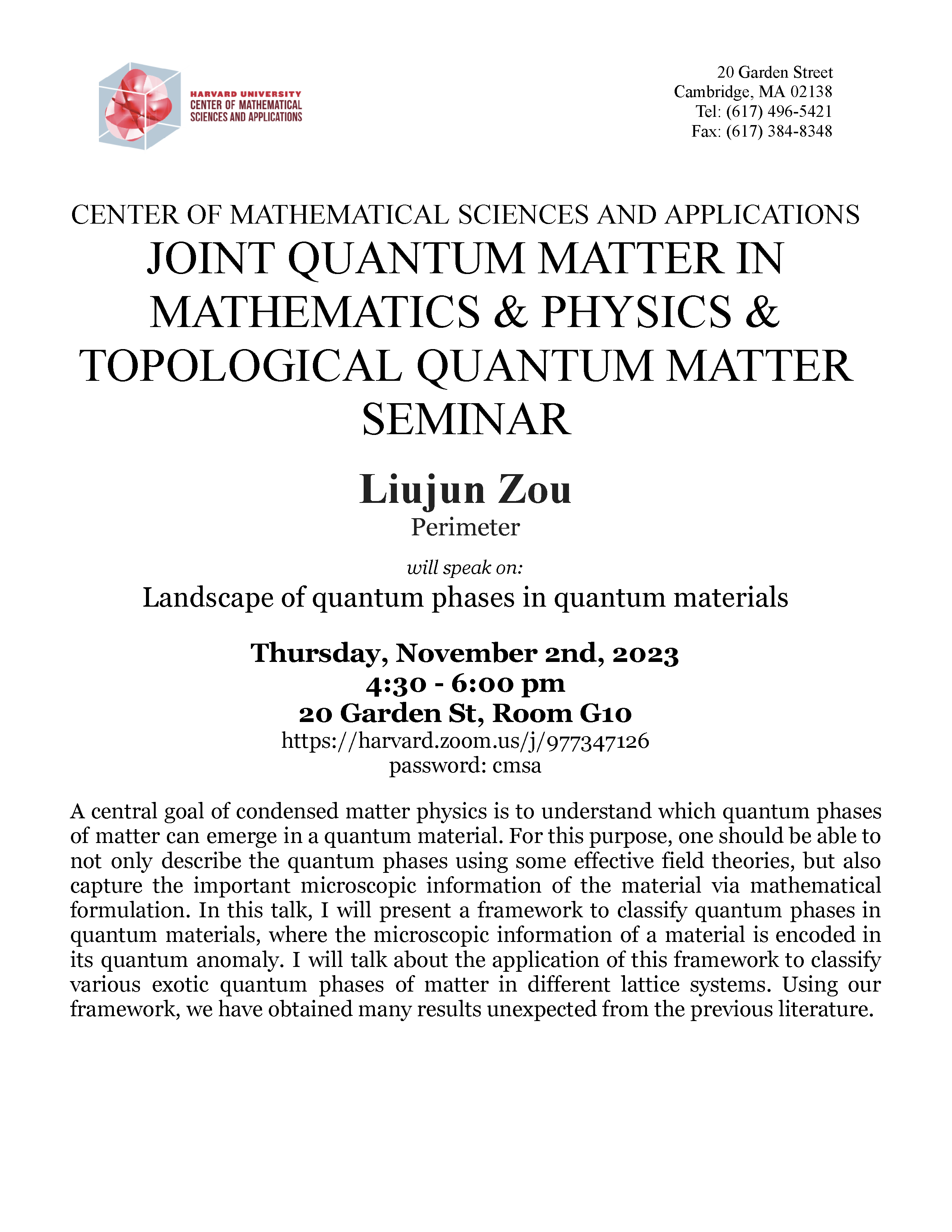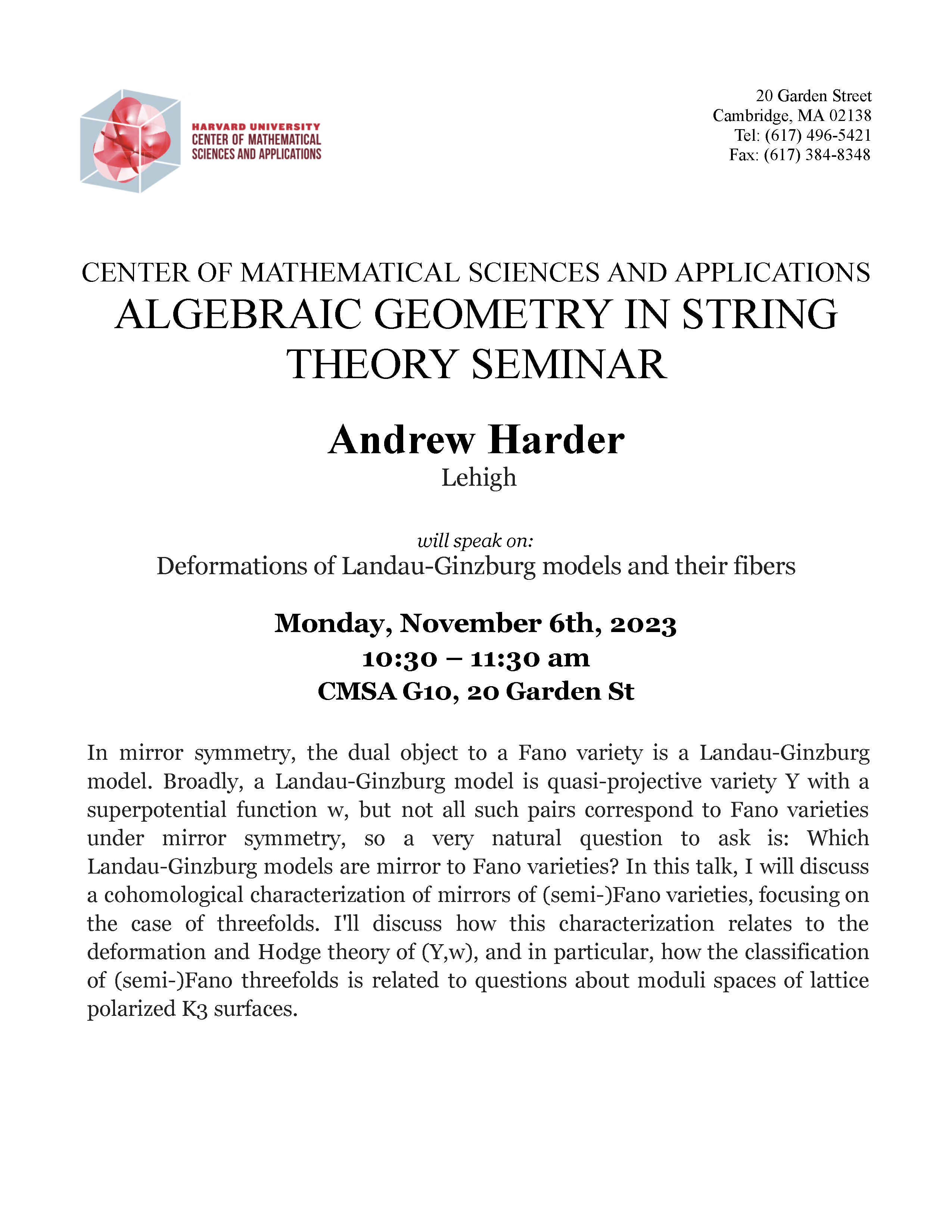Llemma: an open language model for mathematics
CMSA Room G10 CMSA, 20 Garden Street, Cambridge, MA, United Stateshttps://youtu.be/bRHb-MVExJ4 New Technologies in Mathematics Seminar Speaker: Sean Welleck, CMU, Language Technologies Institute Title: Llemma: an open language model for mathematics Abstract: We present Llemma: 7 billion and 34 billion parameter language models for mathematics. The Llemma models are initialized with Code Llama weights, then trained on the Proof-Pile II, a 55 billion token dataset of […]

